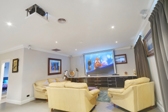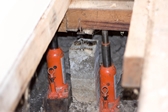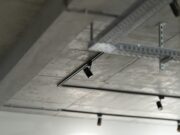Don’t take risks with cheap products
There are very real risks you take when buying products that don’t comply, says Clipsal standardisation manager Gary Busbridge.
These days, there are...
How to identify and deal with asbestos
If you're renovating an older home, there's a fair chance you'll come across asbestos. Because it's so dangerous, laws exist about how it should...
Open platform home automation
Open platform systems provide a means with which many different home technologies and applications can be automated. Learn more about what open platforms are,...
Who ‘installs’ smart homes?
Ever wonder what it takes to make a home 'smarter' - or who to call to make that happen? Learn more about custom installers,...
Restumping a house
Over time, stump subfloors need to be restumped to make sure the house is evenly supported. Find out what restumping involves.
What is restumping?
Restumping, also...
How to check an air conditioner installer’s licence
It's important that you only have licensed technicians do work on your air conditioners. Find out about the different types of air conditioning licenses.
The...
Asbestos and asbestos sheeting
Asbestos, which was used for many years as an insulation material, can pose a serious risk to anyone renovating a home. Find out more...
Asbestos sheeting
Asbestos sheets, when broken, can cause cancer. They are often found in older houses, where they were used for insulation purposes.
Asbestos sheeting needs to...
Cable and rail light mounts
When it comes to interior lighting, the way your lights are mounted can have just as much impact as the lights themselves. While traditional fittings are often fixed in place, cable and rail lighting systems offer a much more flexible and design-forward solution. These systems allow you to position and direct light exactly where you need it—making them ideal for modern homes, renovations or rooms with unique layout challenges.
Window installation
According to Part 8.2 of the NCC 2022 all windows and external glazed doors must be installed so that structural loads are not transferred to the window assembly. A minimum 10 mm gap is required between the top of the assembly and any loadbearing framing or masonry element to allow for settlement over time.















